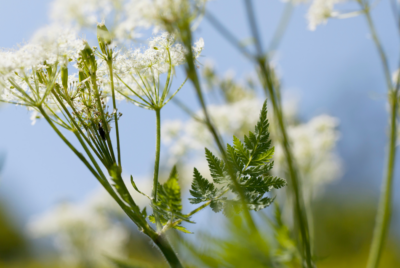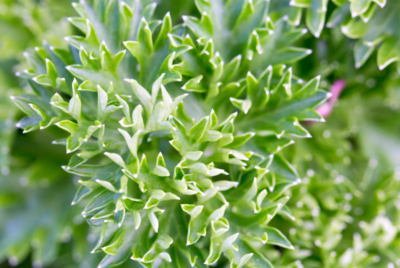User Experiences with Lemon Balm
User Experiences with Lemon Balm
User Experiences of using Lemon Balm have been varied, with individuals reporting a range of effects from calming anxiety and promoting relaxation to improving sleep quality. Some users have also highlighted potential skin irritation when applying lemon balm essential oil directly to the skin, so it is essential to perform a patch test beforehand. Overall, the positive benefits of incorporating Lemon Balm into your wellness routine seem to outweigh any potential risks, but as with any natural remedy, it is essential to proceed with caution and consult with a healthcare professional if you have any concerns. If you have never used lemon balm before – we have included a recipe below: How to make lemon balm tea.
Key Takeaways:
- Calming Effects: Users reported feeling calmer and more relaxed after using lemon balm.
- Improved Sleep: Many users experienced better quality of sleep and relief from insomnia symptoms.
- Enhanced Mood: Lemon balm was found to have a positive impact on mood and overall well-being for users.
1. Users report calming effects and reduced anxiety.
2. Positive impact on sleep quality and duration.
3. Improves mood and decreases stress levels.
4. Enhances focus and cognitive function.
5. Helps reduce symptoms of ADHD in some users.
6. Potential improved digestion and relief of gastrointestinal issues.
The Basics of Lemon Balm
What is Lemon Balm?
Clearly, Lemon Balm, also known as Melissa officinalis, is a calming herb that belongs to the mint family. Its leaves give off a lemony aroma when crushed, hence the name “Lemon Balm.” This herb is native to Europe, North Africa, and West Asia, but it is now grown all over the world for its various medicinal properties.
Lemon Balm is commonly used in traditional medicine and herbal remedies for its potential health benefits. It is praised for its calming effects and is often used to promote relaxation, improve mood, and support healthy sleep patterns. The herb is available in various forms, including teas, essential oils, and supplements.
Historical Uses and Folk Wisdom
On a historical note, Lemon Balm has been used for centuries for its medicinal properties. Ancient Greeks and Romans valued Lemon Balm for its soothing properties and believed it could help with various ailments. In the Middle Ages, the herb was used to reduce stress and anxiety.
For instance, Lemon Balm was known as the “gladdening herb” and was used to lift spirits and improve cognitive function. It was also believed to help with indigestion and promote healthy sleep. Throughout history, Lemon Balm has been a cherished herb for its calming and uplifting qualities.

User Experiences with Lemon Balm: Personal Journeys
Everyday Uses and Techniques
After discovering the soothing benefits of Lemon Balm, many users have incorporated it into their daily routines for various purposes. Some find that brewing a cup of Lemon Balm tea in the morning helps kickstart their day with a sense of calm and focus. Others use Lemon Balm essential oil for aromatherapy to alleviate stress and improve mood throughout the day.
Personal experiences with Lemon Balm also include incorporating it into skincare routines or as a natural remedy for minor skin irritations. Many users have created DIY Lemon Balm salves or creams to soothe dry, irritated skin or to reduce inflammation from bug bites or minor cuts. Overall, Lemon Balm has proven to be a versatile herb that can be easily integrated into daily practices for its calming and healing effects.
Lessons Learned from Long-Term Users
Learned from the experiences of long-term users, it is evident that consistency and patience are key when reaping the full benefits of Lemon Balm. Regular usage over an extended period has shown improved sleep quality, reduced anxiety levels, and overall better stress management among dedicated users.
For instance, long-term users have emphasized the importance of finding the right dosage and delivery method that works best for individual needs. Experimentation with different forms of Lemon Balm, such as capsules, tinctures, or fresh leaves, has led to a better understanding of its effects and benefits over time. Consistency and adaptation to personal preferences play a significant role in maximizing the potential of Lemon Balm as a natural remedy.
Scientific Angles
Despite the rich history and traditional use of lemon balm, modern scientific research has shed light on its potential benefits. Let’s examine into the research-backed benefits and explore the comparisons between studies and anecdotal evidence.
Research-Backed Benefits of Lemon Balm
Benefits of Lemon Balm
Lemon balm has been studied extensively for its calming effects on the nervous system. Research suggests that compounds found in lemon balm may help reduce anxiety and promote relaxation. Additionally, lemon balm has shown promise in improving cognitive function and mood.
Comparing Studies to Anecdotes
To better understand the effectiveness of lemon balm, it is essential to compare scientific studies with anecdotal evidence. While studies provide valuable insight into the potential benefits of lemon balm, personal experiences shared through anecdotes offer a more holistic view of its effects.
To further analyze the efficacy of lemon balm, let’s compare studies and anecdotes in the following table:
Benefits of Lemon Balm
| Studies | Anecdotes |
| Research suggests calming effects on the nervous system | Personal experiences indicate reduced stress and anxiety |
| Potential improvement in cognitive function | Users report enhanced focus and mental clarity |
A deeper exploration into the comparison between scientific studies and anecdotal evidence reveals the multi-faceted nature of lemon balm and its potential benefits. By considering both angles, individuals can make more informed decisions regarding the use of this versatile herb.
Crafting Your Own Lemon Balm Experience
Now that you’ve learned about the user experiences with lemon balm, it’s time to start crafting your own unique experience with this versatile herb. Whether you’re a beginner or a seasoned pro, there are plenty of ways to incorporate lemon balm into your daily routine and reap its many benefits.
Starting with Lemon Balm
Lemon balm is a great herb to start with if you’re new to using medicinal plants. It has a mild, pleasant flavor that blends well with both sweet and savory dishes. You can start by simply adding fresh lemon balm leaves to your favorite teas or salads for a refreshing twist. If you prefer a stronger flavor, you can try making a lemon balm pesto or infused oil to drizzle over grilled vegetables or pasta.
For those who prefer a more relaxing experience, lemon balm can also be used to make a calming tea or tincture. Simply steep the leaves in hot water for a soothing beverage, or combine with other herbs like chamomile and lavender for a powerful relaxation blend. The gentle citrus scent of lemon balm can help ease stress and promote a sense of well-being.
Fresh Lemon Balm Tea Recipe

Ingredients:
A handful of fresh lemon balm leaves (about 1/4 cup)
2 cups of boiling water
Optional: honey or sweetener of choice
Optional: a slice of lemon for garnish
Instructions:
1. Harvest and Prepare Leaves:
Begin by gently harvesting a handful of fresh lemon balm leaves from your garden. If you don’t grow your own, you can often find them at a local farmer’s market or a specialty grocery store.
2. Rinse the Leaves:
Rinse the leaves under cool water to remove any dirt or debris. Pat them dry with a clean towel or let them air dry for a few minutes.
3. Crush the Leaves (Optional):
To release the essential oils and maximize the flavor, you can gently crush the lemon balm leaves with your fingers or the back of a spoon.
4. Steep the Tea:
Place the fresh lemon balm leaves in a teapot or a tea infuser. Pour two cups of boiling water over the leaves and let them steep for about 5 to 10 minutes. The longer you steep, the stronger the flavor will be.
5. Strain and Serve:
After steeping, strain the leaves from the water and pour the tea into a mug. If you used a tea infuser, simply remove the infuser from the mug.
6. Add Sweetener (Optional):
If you prefer a sweeter taste, add honey or your choice of sweetener to the tea. Stir well until the sweetener is fully dissolved.
7. Garnish (Optional):
Add a slice of lemon to your mug for an extra zing of citrus flavor.
8. Enjoy:
Sip the tea slowly and enjoy the calming, citrusy notes of the lemon balm. This tea is especially enjoyable in the evening as a way to wind down before bedtime.
Remember, lemon balm tea is not only delicious but also has the potential to ease stress and promote relaxation. Enjoy your homemade brew as a natural remedy to soothe the mind and body.
Advanced Tips and Tricks for Lemon Balm Enthusiasts
Tips:
-
- Growing Lemon Balm:
| Tip 1: Plant lemon balm in well-drained soil and full sun to encourage healthy growth. | Tip 2: Harvest the leaves frequently to promote new growth and prevent the plant from becoming leggy. |
Enthusiasts:
-
- Using Lemon Balm in Skincare:
| Tip 1: Create a homemade lemon balm salve by infusing the leaves in oil and combining with beeswax and essential oils. | Tip 2: Apply the salve to dry or irritated skin for a soothing and moisturizing effect. |
To wrap up
Based on user experiences, Lemon Balm is a popular herb known for its calming and relaxing properties, making it a favorite among those looking to manage stress and anxiety. Many users have reported positive effects such as improved mood, better sleep, and reduced anxiety levels after incorporating Lemon Balm into their daily routine. Whether used in tea, tinctures, or essential oils, Lemon Balm seems to offer a natural and gentle way to promote overall well-being. So why not give it a try and see how it can enhance your own health and happiness?

FAQ
1: What is Lemon Balm and how is it used?
A: Lemon Balm is a herb from the mint family known for its calming properties. It is commonly used in teas, tinctures, and essential oils to promote relaxation and reduce stress.
2: Can Lemon Balm help improve sleep quality?
A: Yes, Lemon Balm is often used as a natural remedy for sleep disorders. It can help promote relaxation and ease anxiety, leading to better sleep quality.
3: Are there any side effects of using Lemon Balm?
A: Lemon Balm is generally safe for most people when used in appropriate amounts. However, some individuals may experience mild side effects such as nausea or stomach upset.
4: How long does it take to experience the effects of Lemon Balm?
A: The time it takes to feel the effects of Lemon Balm can vary from person to person. Some may experience immediate relaxation, while others may need to use it consistently for a few days to notice a difference.
5: Can Lemon Balm be used to improve concentration and focus?
A: Yes, Lemon Balm is believed to have cognitive enhancing properties that can help improve concentration and focus. Many people use it to support mental clarity and reduce brain fog.



